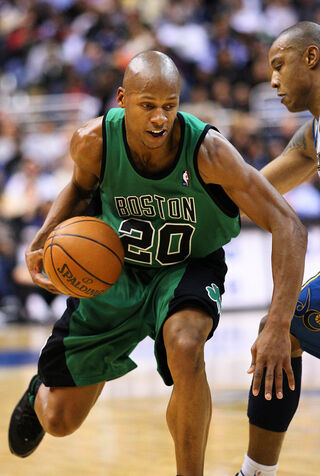OCD
Black American Celebrities and Notables with OCD
These notables break the stigma of a hidden affliction in the Black community.
Posted March 31, 2021 Reviewed by Pam Dailey
Key points
- OCD remains a hidden problem in African-American communities.
- Many Black celebrities have opened up about their struggles with OCD to break the stigma.
- New resources are available to help Black people overcome OCD.
Obsessive-Compulsive Disorder (OCD) is known for causing persistent obsessions (reoccurring and unwanted thoughts) and ritualized compulsions (repetitive behaviors to quell anxieties). All types of people live with OCD—those of different ages, races, ethnicities, genders, income levels, and degrees of celebrity. OCD comes in many forms, so often people confuse OCD with other problems. To help raise awareness of the mental health struggles in Black communities, this article will highlight Black notables and celebrities who have dealt with or are still living with symptoms of OCD.
Amerie
The recording artist has often mentioned her struggles with OCD. Although she hasn’t disclosed how the disorder manifests in her case, Amerie has said that her OCD has been triggered by fame, having to make appearances, being on red carpets, and other causes. We are not sure why she doesn’t like red carpets, but sometimes people with OCD avoid the color red because it reminds them of blood or the devil.
J Cole
The rapper explained in a radio interview in 2013 that he has OCD. He described a compulsion he has when driving that involves moving his head to mentally “go around every pole” that he sees.

Kelly Rowland
The singer-songwriter and former Destiny’s Child member has dealt with OCD that included the compulsive ordering and arranging of objects. In a 2015 interview, Kelly Rowland explained how she had to adjust with the arrival of her son because she had to get used to having his toys everywhere.
Kanye West
In 2007, the rapper said that he has OCD. He said it left him always craving perfection in the different facets of his life, including his music career, and even that his approach to music has been influenced by his OCD. Interestingly, Kanye has also credited his OCD with his success! This is a good place to point out that if what seem to be OCD symptoms are helping a person and not hurting them, then we wouldn’t consider it a disorder or even diagnose it at all. So, based on what Kanye has said, this wouldn’t be OCD, even though he may have called it that. That being said, the famous rapper has battled with other forms of mental illness in the past.

Ray Allen
The two-time NBA champion has talked about some of his behaviors that he thinks stem from OCD. One of these is a need for cleanliness. If there is even a “speck of paper” on his floor, he says he always feels the urge to pick it up. He says when he attempts to ignore the imperfection, he cannot get rid of the mental image of the flaw. This would fall into the category of OCD symptoms focused on arranging, symmetry, and perfectionism.
Michael Jackson
The late “King of Pop” was thought to have Body Dysmorphic Disorder (BDD). BDD is not OCD, but it is a condition very closely related to it. BDD involves a debilitating preoccupation over the idea that something is wrong with one’s appearance, followed by compulsive checking and grooming or even cosmetic surgery. During his lifetime, Michael Jackson had many cosmetic surgery procedures that changed his facial structure, including his cheekbones, chin, nose, and lips, which may have stemmed from BDD.
About OCD in Black Communities
Even though we don’t hear as much about obsessive-compulsive disorder (OCD) in Black communities, all ethnic groups seem to be equally afflicted. However, Black people are much less likely to get diagnosed or seek help, and therefore they suffer much longer with this treatable condition.
Our research team interviewed African American patients with OCD in a study on barriers to treatment for people of color (Williams et al, 2012). One Black OCD patient said, “I never researched it enough to know that there was sufficient treatment available. I guess I thought it was something I just had to deal with.” Another noted, “I did not know or think I had a problem until several acquaintances pointed it out to me.”
One reason Black people are less likely to seek treatment is that they don’t know where to get help, or they have concerns that they will be treated unfairly due to their race. To address these problems, the International OCD Foundation has devoted a special section on their website to the BIPOC experience and compiled a list of therapists who treat clients of color with OCD.
Authored by Grace Jacob, Nicholas Flower, Psy.D., and Monnica Williams, Ph.D.
References
Author credits: Grace Jacob is a psychology honours student at the University of Ottawa, conducting research in Dr. Monnica Williams Laboratory for Culture and Mental Health Disparities. Monnica Williams, PhD, ABPP, is the Canada Research Chair for Mental Health Disparities at the University of Ottawa and Clinical Director of the New England OCD Institute. Nicholas Flower, PsyD, is a clinical psychologist in Pittsburgh, PA where he specializes in treating OCD and the spectrum of similar disorders at his practice, OCD Spectrum.
Williams, M. T., Domanico, J., Marques, L., Leblanc, N., & Turkheimer, E. (2012). Barriers to Treatment Among African Americans with Obsessive-Compulsive Disorder. Journal of Anxiety Disorders, 26(1), 555-563. doi: 10.1016/j.janxdis.2012.02.009




